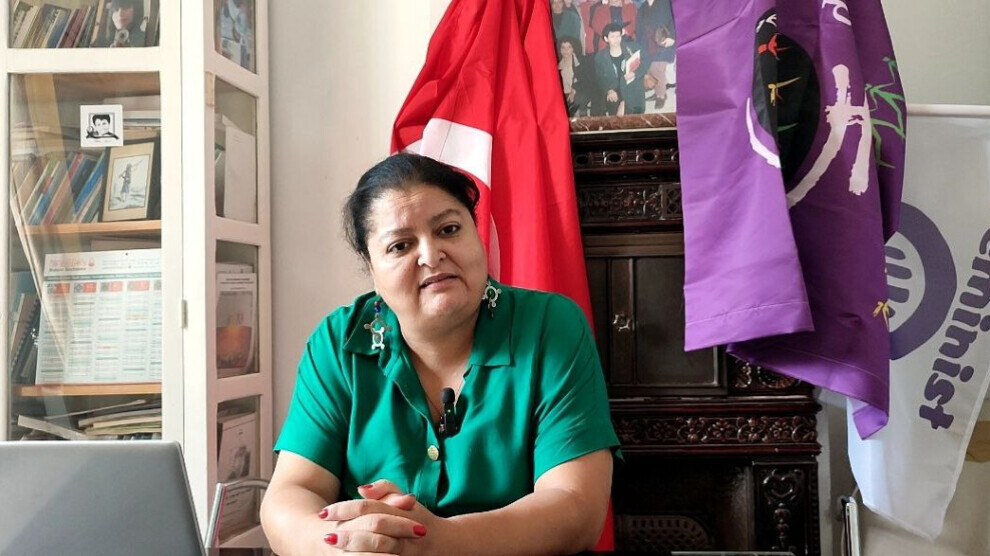From Iran to Tunisia, women’s struggle breaks borders
The world marks Jina Amini’s death, her strand of hair a global symbol of defiance against oppression, embodying women’s relentless fight for freedom and dignity.

ZOUHOUR MECHERGUI
Tunis - September 16, 2022, was no ordinary day. It was a day draped in mourning, not only in Iran and Eastern Kurdistan, but in the hearts of women across the world. Outrage erupted over the killing of Jina Amini, a young woman whose “crime” in the eyes of Iran’s so-called morality police was a rebellious strand of black hair.
Though Jina Amini is gone, her voice endures as a rallying cry embodied in the slogan “Jin, Jiyan, Azadî” – “Women, Life, Freedom”. From Italy to India, from Iraq to Egypt, her name reverberates in global streets, amplifying the power of women’s revolt and people’s demand for dignity and freedom.
The world bid farewell to Jina’s body, yet her spirit remains alive with every woman who rises against oppression, demanding equality, justice, and liberty. She has become a global icon, honored with symbolic citizenship in Paris and commemorated across continents as a beacon of women’s resistance to tyranny.
Despite Tehran’s brutal machinery of repression, the regime has failed to crush women’s defiance. Neither the arrests of activists such as Varisheh Moradi, Bakhshan Azizi, and Sharifeh Mohammadi, nor unjust death sentences, have silenced them. Instead, their struggle has drawn international solidarity, ensuring that Jina Amini – and every woman who resists injustice – will remain an eternal flame of freedom.
‘Bodily freedom is a red line’
This wave of feminist solidarity has not been confined to Iran and the region alone, but has resonated worldwide. In Tunisia, Raja Dahmani, president of the Tunisian Association of Democratic Women, said the organization continues to honor the memory of Jina Amini, the young woman targeted for a strand of hair.
She explained that Tunisia’s women’s movement responded with a protest in front of the Iranian Embassy in Tunis, in defense of Jina Amini, who was subjected to severe violations that cost her life and ignited a women’s uprising in Iran that continues to resist oppression. She stressed that state guardianship over women’s bodies represents an intolerable violation that must be confronted.
“We fought hard to establish laws that protect women and grant them freedom of dress. We believe bodily freedom is a red line, and no one should interfere in women’s choices—whether to wear or remove the veil. This is a personal decision, and what Iranian women are facing today demands solidarity to stop it,” Dahmani said.
She also recalled a time when Iranian women were pioneers—enjoying freedoms, rich cultural engagement, and leadership in many fields. But, she added, that progress was crushed after the rise of the right, which seized control of the country, suppressed women, and imposed discriminatory laws and compulsory hijab. “This has directly attacked women’s bodily freedom and their right to choose their clothing,” she said.
Iranian women’s struggle continues
Dahmani stressed that under the rule of the clerical regime, Iranian society has become increasingly conservative, determined to suppress women, erase cultural heritage, and exert control over women’s bodies. She emphasized that the continued struggle of Iranian women, despite the weight of a powerful repressive system, demonstrates their true strength and their refusal to fear defending their right to live in safety and peace.
She expressed solidarity with imprisoned Iranian women sentenced to death, describing these verdicts as unjustly harsh, handed down simply for demanding freedom and the right to participate in public and political life without police repression or surveillance.
Dahmani praised their perseverance “in the darkness and from inside prisons,” where they continue to fight for their rights against patriarchy and a male-dominated system that denies women equality and freedom.
She reaffirmed her full and unconditional solidarity with Iranian women and their ongoing revolution against injustice:
“We stand firmly with their resistance and steadfastness to liberate themselves, their bodies, and their future. Through their continued peaceful struggle, they prove they deserve freedom, peace, and leadership. Freedom for them, for all the oppressed, and for all women.”
